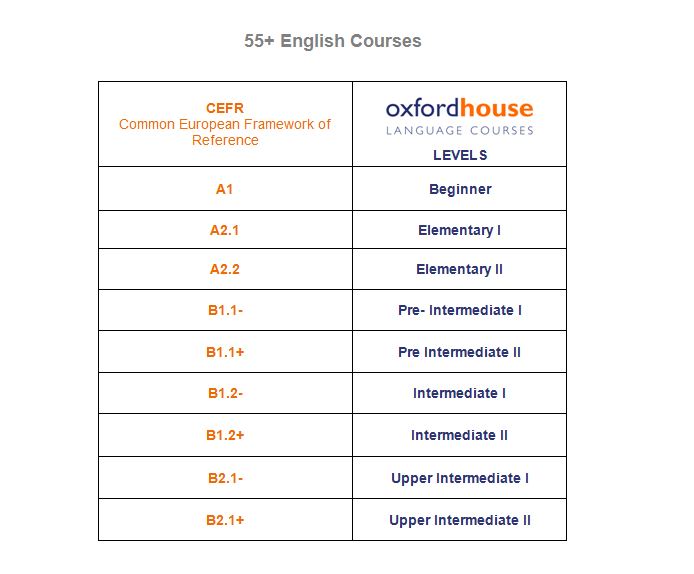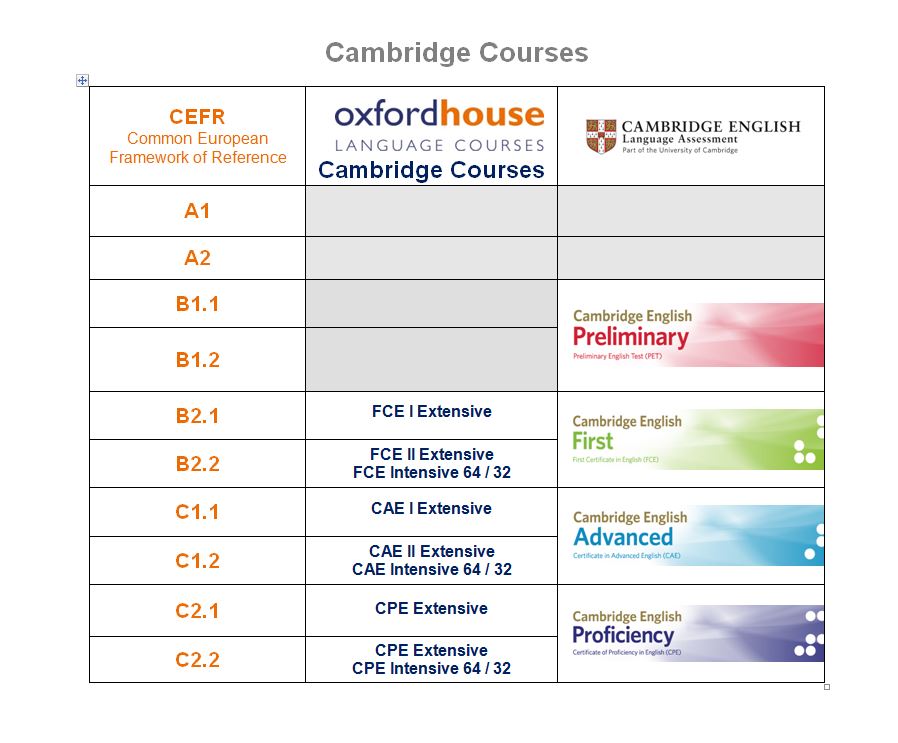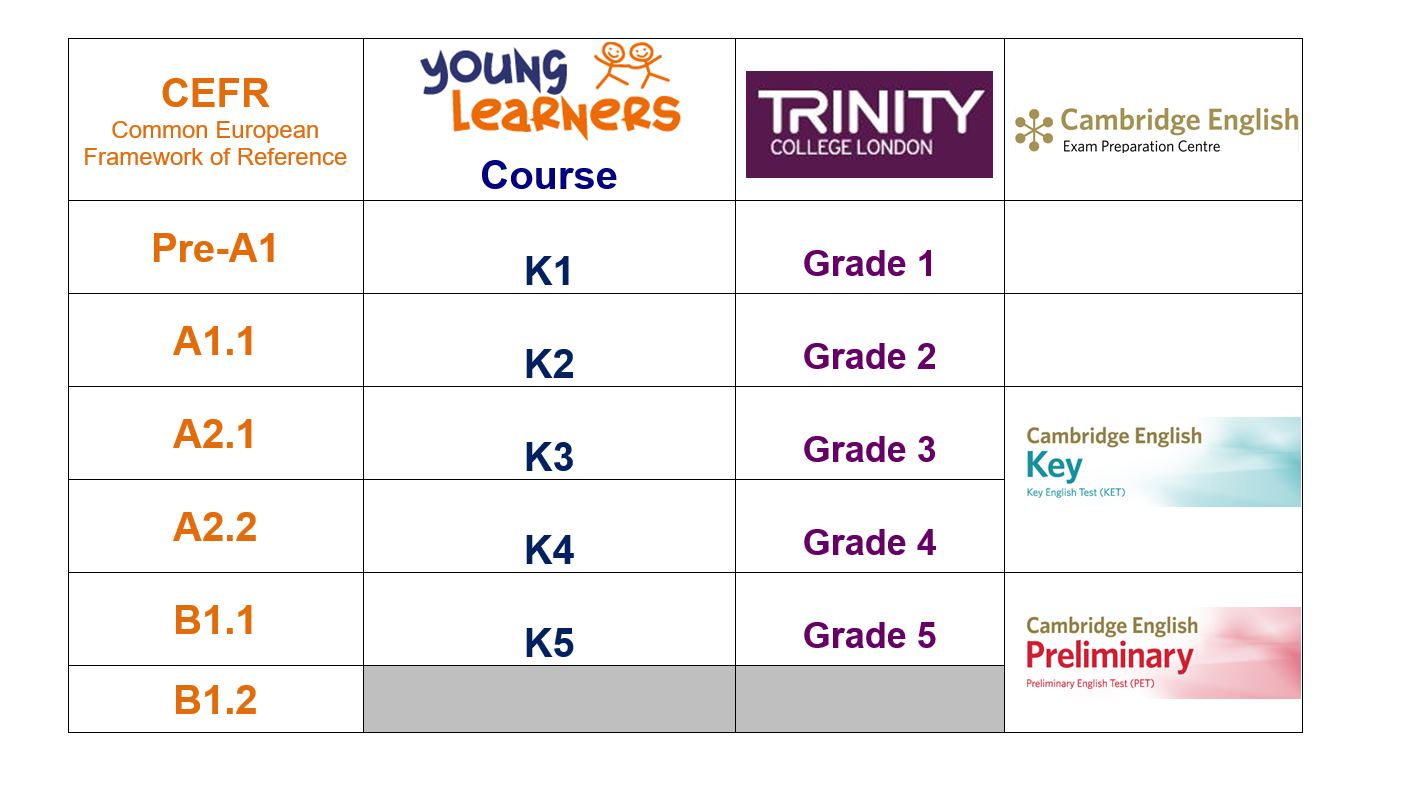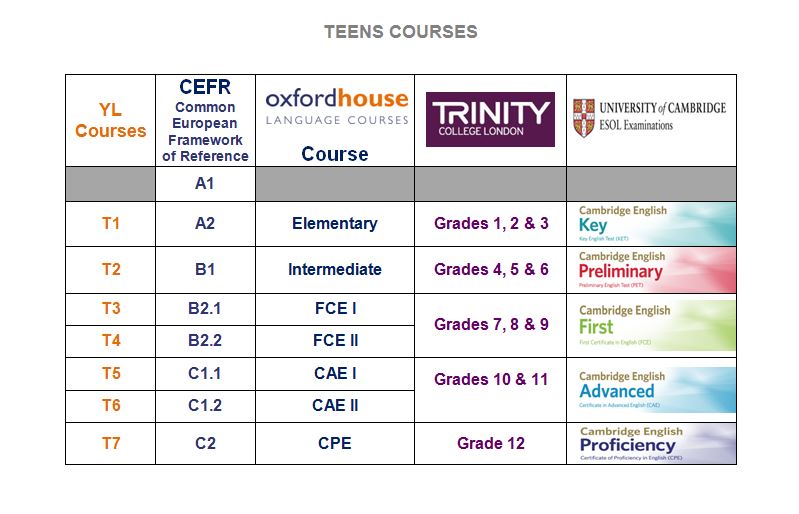In addition to the CEFR, our English courses are also aligned with the Trinity English levels.
We offer language courses in all the levels from A1 to C2 of the Common European Framework of Reference for Languages (CEFR).
Level comparison table
CEFR level guide
The Common European Framework outlines the following abilities expected of students at each level.
Can understand and use familiar everyday expressions and very basic phrases aimed at the satisfaction of needs of a concrete type. Can introduce him/herself and others and can ask and answer questions about personal details such as where he/she lives, people he/she knows and things he/she has. Can interact in a simple way provided the other person talks slowly and clearly and is prepared to help.
Can understand the main ideas of complex text on both concrete and abstract topics, including technical discussions in his/her field of specialisation. Can interact with a degree of fluency and spontaneity that makes regular interaction with native speakers quite possible without strain for either party. Can produce clear, detailed text on a wide range of subjects and explain a viewpoint on a topical issue giving the advantages and disadvantages of various options.
Can understand the main points of clear standard input on familiar matters regularly encountered in work, school, leisure, etc. Can deal with most situations likely to arise whilst travelling in an area where the language is spoken. Can produce simple connected text on topics which are familiar or of personal interest. Can describe experiences and events, dreams, hopes ambitions and briefly give reasons and explanations for opinions and plans.
A learner at this level understands extended speech and lectures and follow even complex lines of argument provided the topic is reasonably familiar. Understands most TV news and current affairs programmes. Understands the majority of films in standard dialect. Can read articles and reports concerned with contemporary problems in which the writers adopt particular stances or viewpoints. Understands contemporary literary prose. Can interact with a degree of fluency and spontaneity that makes regular interaction with native speakers quite possible. Can take an active part in discussion in familiar contexts, accounting for and sustaining my views. Can present clear, detailed descriptions on a wide range of subjects related to his/her field of interest. Can explain a viewpoint on a topical issue giving the advantages and disadvantages of various options. Can write letters highlighting the personal significance of events and experiences, write clear, detailed text on a wide range of subjects related to my interests and can write an essay or report, passing on information or giving reasons in support of or against a particular point of view.
Can understand a wide range of demanding, longer texts, and recognise implicit meaning. Can express him/herself fluently and spontaneously without much obvious searching for expressions. Can use language flexibly and effectively for social, academic and professional purposes. Can produce clear, well-structured, detailed text on complex subjects, showing controlled use of organisational patterns, connectors and cohesive devices.
Can understand with ease virtually everything heard or read. Can summarise information from different spoken and written sources, reconstructing arguments and accounts in a coherent presentation. Can express him/herself spontaneously, very fluently and precisely, differentiating finer shades of meaning even in the most complex situations.







